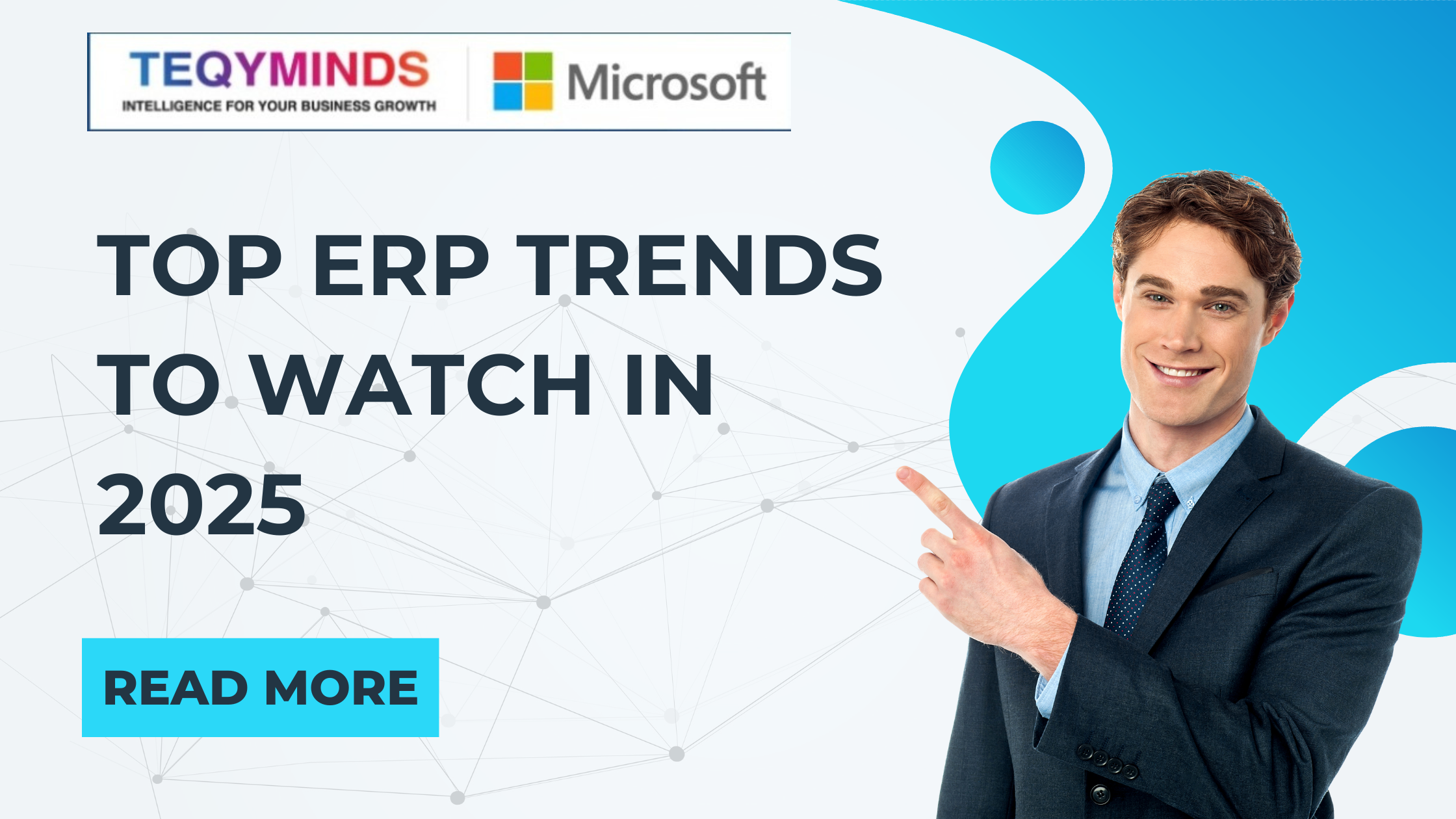As businesses evolve in an ever-changing technological landscape, enterprise resource planning (ERP) systems remain critical for managing operations efficiently. In 2025, ERP systems are expected to undergo significant transformations, driven by technological advancements and shifting business needs. Let’s explore the top ERP trends to watch in 2025 and how they will shape the future of business.
1. Cloud ERP Dominance
The shift to cloud-based ERP systems is not new, but in 2025, it is expected to become the norm. Cloud ERP offers several advantages, including:
- Scalability: Businesses can scale their ERP systems up or down based on their requirements.
- Cost-effectiveness: Reduced upfront costs and predictable subscription-based pricing.
- Accessibility: Teams can access ERP systems from anywhere, fostering remote work and global collaboration.
- Security: Cloud providers are investing heavily in cybersecurity measures, ensuring that sensitive data is protected.
2. Artificial Intelligence (AI) Integration
AI is revolutionizing ERP systems by enabling smarter decision-making and automating routine tasks. Key applications of AI in ERP include:
- Predictive Analytics: AI analyzes historical data to forecast trends, such as inventory demand or financial performance.
- Process Automation: Routine tasks, like invoice processing or payroll, can be automated, freeing up time for strategic activities.
- Enhanced Customer Insights: AI-driven ERP systems can provide deeper insights into customer behavior, helping businesses tailor their offerings.
3. Focus on User Experience (UX)
ERP systems have traditionally been seen as complex and difficult to navigate. However, modern ERP solutions focus on user-friendly interfaces to improve adoption rates and productivity. Trends in UX for ERP systems include:
- Simplified Dashboards: Easy-to-read dashboards that display key metrics and actionable insights.
- Mobile-Friendly Design: ERP platforms that work seamlessly on smartphones and tablets.
- Personalization: Customizable interfaces to meet the unique needs of different users and departments.
In 2025, intuitive ERP systems will be a key factor in driving user satisfaction and productivity.
4. ERP and IoT Integration
The Internet of Things (IoT) connects devices and sensors across industries, and ERP systems leverage this data to improve operations. Key benefits of ERP-IoT integration include:
- Real-Time Monitoring: IoT devices can feed real-time data into ERP systems for better decision-making.
- Predictive Maintenance: Sensors can alert businesses to potential equipment failures, reducing downtime.
- Inventory Management: IoT-enabled tracking systems ensure accurate inventory levels and efficient supply chain management.
In sectors like manufacturing, logistics, and healthcare, IoT-enabled ERP systems will be game-changers in 2025.
5. Increased Focus on Data Security and Compliance
As businesses handle increasing volumes of sensitive data, ERP systems must prioritize security and compliance. In 2025, expect to see:
- Advanced Encryption: Protecting data from unauthorized access.
- Compliance Features: ERP systems are equipped with tools to ensure compliance with regulations like GDPR or HIPAA.
- Proactive Threat Detection: AI-powered tools to detect and mitigate cybersecurity threats before they escalate.
Security will remain a top priority for ERP vendors and users alike.
6. Modular ERP Solutions
Traditional ERP systems often come with a one-size-fits-all approach, which may not suit all businesses. Modular ERP solutions allow companies to pick and choose functionalities that meet their specific needs. Benefits of modular ERP include:
- Flexibility: Businesses can add or remove modules as needed.
- Cost Efficiency: Only pay for the features you use.
- Faster Implementation: Implementing individual modules is quicker than deploying an entire ERP system.
In 2025, modular ERP systems will cater to businesses of all sizes, from startups to large enterprises.
7. Industry-Specific ERP Solutions
Generic ERP systems may not address the unique challenges of specific industries. As a result, vendors are developing industry-specific ERP solutions tailored to the needs of sectors like:
- Manufacturing: Advanced production planning and quality control.
- Healthcare: Patient record management and compliance with health regulations.
- Retail: Omnichannel inventory management and customer analytics.
These tailored solutions will enable businesses to gain a competitive edge by addressing their unique requirements.
8. ERP for Small and Medium Businesses (SMBs)
Historically, ERP systems were seen as tools for large enterprises due to their complexity and cost. However, in 2025, ERP systems will become increasingly accessible to SMBs thanks to:
- Affordable Pricing: Cloud-based and modular ERP solutions reduce costs.
- Simplified Implementation: User-friendly platforms that don’t require extensive IT expertise.
- Scalability: Systems that grow with the business.
This trend will empower SMBs to compete with larger players by leveraging the power of ERP.
10. Blockchain in ERP Systems
Blockchain technology offers a new level of transparency and security in ERP systems. Key applications include:
- Secure Transactions: Ensuring tamper-proof records for financial transactions.
- Supply Chain Transparency: Tracking products from origin to destination.
- Smart Contracts: Automating contract execution based on predefined conditions.
By integrating blockchain, ERP systems in 2025 will enhance trust and efficiency in business processes.
Conclusion
The ERP landscape is evolving rapidly, with innovations that promise to make these systems more accessible, efficient, and powerful than ever before. From AI integration to IoT-enabled functionalities and sustainability-focused solutions, ERP systems in 2025 will empower businesses to adapt and thrive in a dynamic environment.
By staying ahead of these trends, businesses can harness the full potential of ERP systems to drive growth, streamline operations, and achieve their strategic goals. Whether you’re a small business or a large enterprise, the future of ERP is filled with exciting opportunities.


Leave A Comment